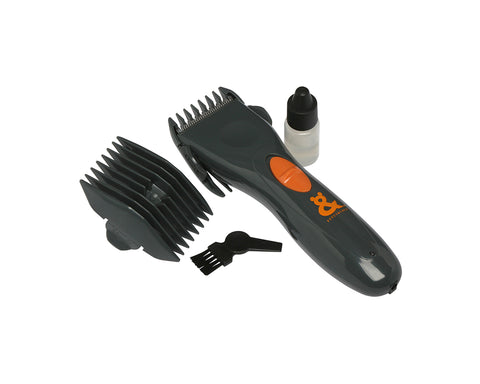5 Tips to Avoid Parasites in Dogs
- by Rufus and Coco
Whether they affect the body from the inside or the outside, parasite infestations can significantly influence a dog’s health. Mild infections can pass unnoticed which can then lead to more severe cases that can cause progressive weakness, exhaustion, anaemia, and sometimes, even death.
The best way to avoid parasites in dogs would be to make sure that you stick to your check-up schedule and take your pet to the vet, at least, twice a year.
How to Prevent My Dog From Getting Parasites
Pay attention
Prevention is worth a pound of cure both when it comes to intestinal parasites and external ones. Fleas can carry tapeworms and cause allergies, whereas ticks can carry the pathogens that make dogs develop Lyme disease or Babesiosis.
Knowing the signs and keeping an eye on how your dog behaves can go a long way in making sure that you treat them as early as possible. Just take a good look at your dog’s body after you’ve taken them out for a walk and see whether they’ve accidentally caught something from the grass or from another animal.
General symptoms of internal parasites range from diarrhoea and abdominal pain to weight loss and lethargy.
Take them to the vet
Your vet can give you the most valuable advice when it comes to parasite prevention and even recommend specific deworming products based on your dog’s health status and age.
For example, puppies shouldn’t be dewormed with certain medications that work for adults because they are much more sensitive in comparison. The same goes for the products that you can use for treating and preventing fleas and ticks.
Your vet can also tell you how often you should deworm your dog or if additional medication or treatment is needed.
Use prevention products
Dogs can get parasites from everywhere, including you. If you’ve played with another dog and have forgotten to wash your hands, or if you’ve gone through an area where there might have been eggs or larvae on the ground, you risk being the vector.
The reason vets advise deworming and using flea and tick medications on your dog even if you aren’t sure whether they have parasites is that you can easily tell if they do afterwards.
For example, getting rid of fleas can reduce the symptoms of dermatitis and allergies. As for internal parasites, after a single dose of the medication, you can simply take a look at your dog’s faeces and see whether they’ve eliminated any eggs, larvae, or adults. That’s how you know whether you should give them a second dose or not.
Giving your pet a bath using a safe product like our Flea Flee treatment shampoo can prevent and repel fleas, lice, as well as some types of ticks.
Have your dog groomed
If your pet has a heavy and rich double coat, you have no way of knowing whether they have external parasites or not.
Keeping your dog’s coat nicely groomed can assist you in telling whether it’s time for you to take them to the vet for treatment or if you can apply one at home.
If your dog is relatively calm and doesn't have a long, thick coat, you can even give them a haircut yourself with a pair of Easy Trim Cordless Clippers. After that, you can rely on a Self Cleaning Deshedder Brush every day or once every two days to keep things in check.
Clean your dog after every walk
Your mate can pick up parasites outdoors - whether from other animals or their surroundings.
Giving your dog’s paws a nice little clean with a set of pet-friendly wipes or even washing their paws when you come back home can help with the removal of any parasite eggs they might have collected.
Also, if you know that your dog is prone to developing allergies, besides practising excellent hygiene and checking on their skin to see if they have fleas, lice, or ticks, you should consider using an Itch Relief medicated shampoo that can minimise irritation and flaking, and prevents fungal infections.
Final thoughts
Simple and common sense measures such as avoiding giving your dog raw meat and other raw products can also make a difference when it comes to preventing internal parasites.
Maintaining your vet visit schedule and starting a deworming and defleaing routine will also pay off down the line.
- Posted in:
- dog
- grooming
- health-tips
- how to help
- tips









